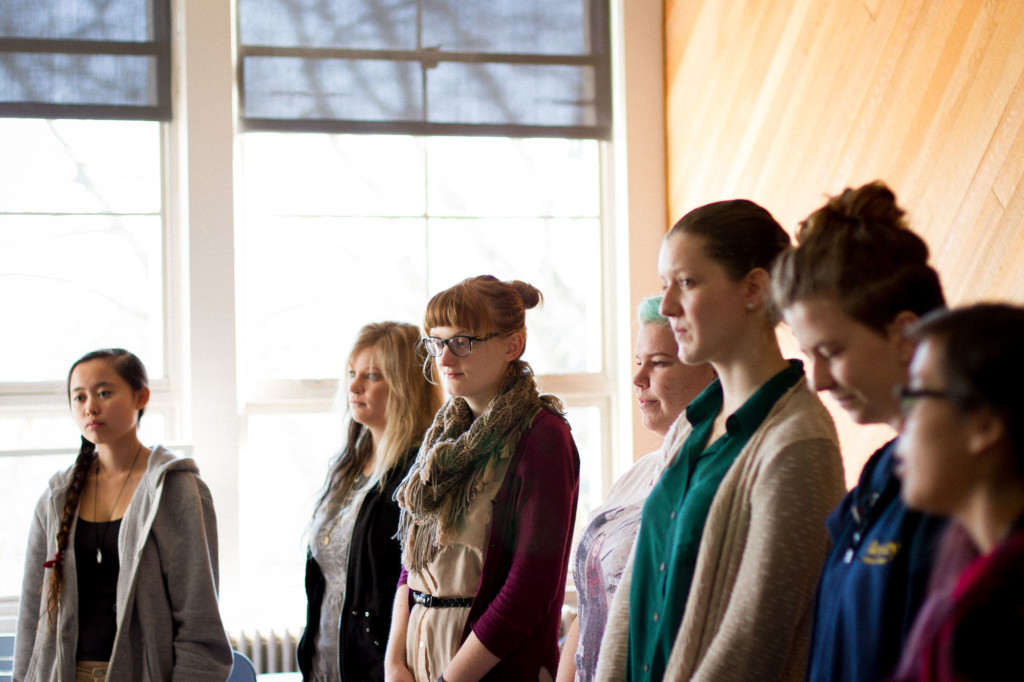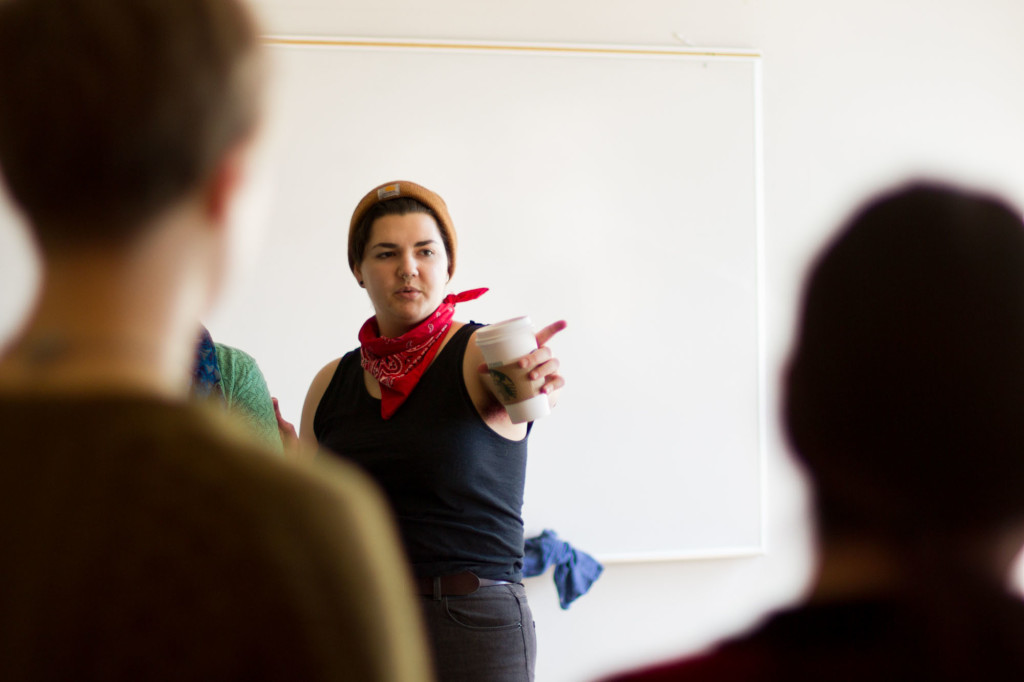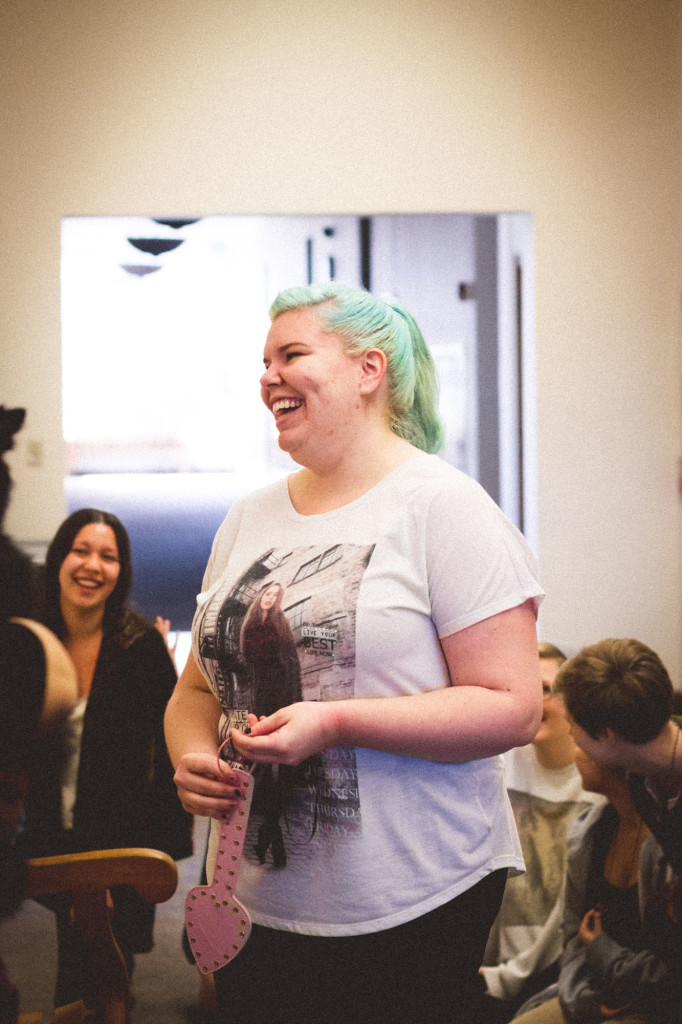You stop to chat with a friend on the lower mall. Common conversation topics might include class, the weather, C-street and unreliable printers. Things you’re probably not talking about? Vaginas.
It’s not as though they’re not thought about. They’re around, they’re here to stay, but they carry enough stigma that few are comfortable talking about them, or even just uttering the word…vagina.
That’s why Seattle University Society of Feminists’ yearly production of “The Vagina Monologues” will feature the word. A lot.
Based off of interviews by Eve Ensler with over 200 women, and directed this year by Seattle U students Cy Enseñat and Kiana Serna, “The Vagina Monologues” is a selection of individual narratives which change from year to year based on the stories chosen.
But the central themes do not change—each monologue explores messages of female empowerment while also grappling with difficult topics like discrimination and violence against women. The episodes tell stories of sex, love, rape, menstruation, genital mutilation and more—topics which can undoubtedly be difficult to discuss.
Both Susanna Waldrop and Sufia Ahmad say that they were uncomfortable with the concept of talking about vaginas before joining the cast of “The Vagina Monologues”—but that has since changed drastically.
Waldrop is a junior, now in her third year on the cast of the Monologues. Ahmad is a freshman, and had the unique opportunity of finding her own monologue for the show.
Ahmad’s piece is called “Under the Burka.” It is about an Afghan woman’s experience with the Taliban.
Being of an Afghan and Muslim background herself, Ahmad knew immediately that she wanted to do this monologue—not only to highlight the abuse of the Taliban towards women, but also to point out that the Taliban does not represent all of Islam. Through this monologue, Ahmad is able to stand up against gender-based and religious-based persecution.
Though “The Vagina Monologues” focuses on the feminine experience overall, the individual episodes are intersectional with other social forces and pressures.
“We have to think about feminism, but not just white women feminism,” Ahmad said.
The monologues look at feminism across a wide spectrum, examining the experiences of women from different cultures, orientations and religions.
“I’ll never trust a feminist organization that simplifies feminism into anything,” said Akaila Ballard, Program Coordinator for “The Vagina Monologues.”
Ballard and the rest of the cast are well aware that vaginas make people uncomfortable. But according to Ballard, this discomfort should not be because of the vaginas themselves, but because of the suffering that weaves through many of these women’s narratives.
Waldrop said that from what she’s heard from men who’ve gone to see the show before, it is a huge eye-opener into the female experience. According to Waldrop, as long as women are suffering from something, it’s a problem, and even men who don’t consider themselves part of that problem can be part of the conversation.
“Even if they’re not personally assaulting people they can still be part of the solution,” Waldrop said.
According to Ahmad, girls are taught not to be sexual beings from the day that they are born. But, she said, sexuality is very closely linked to empowerment, and thus a shift in thinking about sexuality is necessary. Allowing women a space to tell their stories helps to broaden the conversation about women’s experiences and hopefully lead to some solutions.
“A lot of the social inequality perpetuated against women is coming from them not being able to talk about their struggles with their sexuality and struggles with violence against them,” Ahmad said.
“The Vagina Monologues” are part of a larger movement called the V-Day Campaign, the intent of which is to end violence against women and girls. All proceeds from the tickets, and from treats available at the shows, will go to the V-Day Campaign and the Northwest Network, which works to end abuse and create conditions to support healthy relationships within (and beyond) the LGBTQ community.
“The Vagina Monologues” are about violence against women and about what it means to have a vagina—which includes topics and themes which could be challenging for audience members. Ballard says to listen if you can.
“Just remember the power of the personal narrative, and how listening, even when it’s hard and uncomfortable, can be the greatest tool that we have,” Ballard said.
“The Vagina Monologues” is this Friday, March 13 at 7 p.m., and this Sunday, March 15 at 2 and 7 p.m. Tickets for students, staff, faculty and alumna are $5 in advance or $8 at the door. Tickets for the general public are $8 in advance or $10 at the door.











